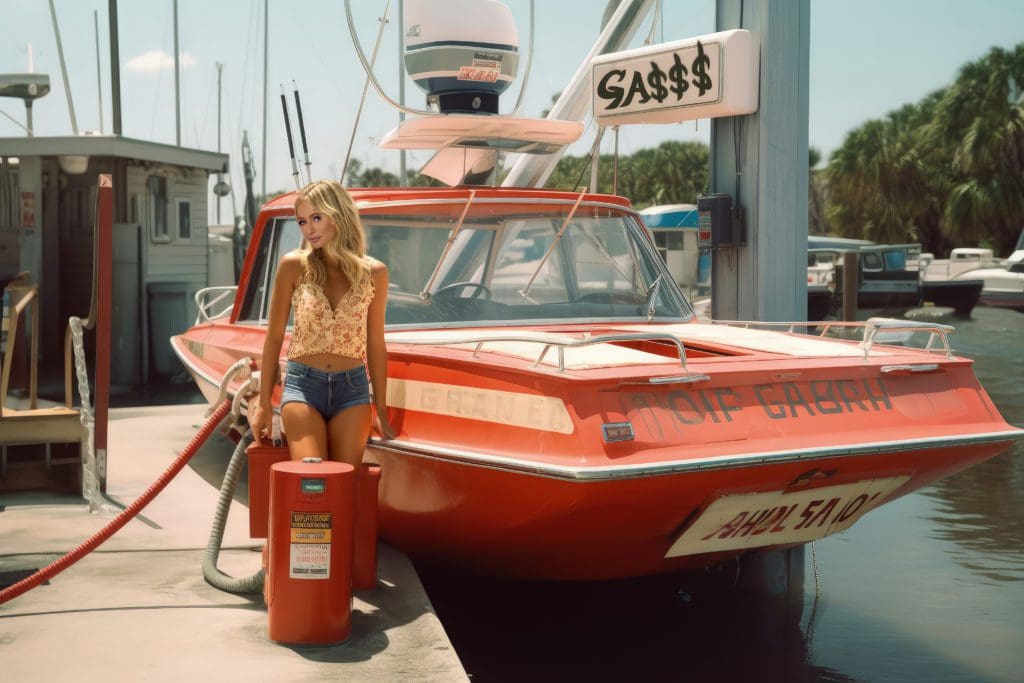Maxime your Boat’s Fuel Efficiency. Strategies for Smarter and more “Eco-Friendly” Boating
Adapting to Rising Boating Gas Prices
Remember the good old days when marine gasoline was so affordable that it barely impacted our daily lives? You’d fill your car or boat without worrying about the costs or your boats fuel economy. Back then, an afternoon of fishing, waterskiing, or cruising was easily accessible for the average middle-class family.
Times have changed, and with boating gas prices reaching new heights, we now seek ways to enhance our marine fuel economy. Manufacturers are constantly innovating to create more fuel-efficient boats and engines, even though overcoming the power requirements of moving through water is more challenging than driving on roads.
Boaters Can Take Control of Their Boat Fuel Consumption
Although engine dynamics and power requirements for boats are complex, both boat and engine manufacturers have discovered ingenious ways to make recreational vessels consume less fuel. Additionally, as a boat owner, you can exert more control over your fuel usage. This doesn’t mean using your boat less but operating it more efficiently. By utilizing specific tools that provide crucial information while running your boat, you can make smarter operating decisions.
Yamaha’s Advanced Four-Stroke Engine Technology… Improved Marine Fuel Economy?
Yamaha’s four-stroke engine technology leads the way in marine fuel economy. In every horsepower class, Yamaha engines consume much less fuel than their predecessors. Moreover, Yamaha engineers prioritize providing critical engine information to boaters while they operate their vessels. This data enables you to cover greater distances with less gasoline, reducing operating costs and extending your boating pleasure.
Yamaha has developed the Command Link® and Command Link Plus® engine gauge systems to provide this information. These gauges not only display engine RPM and vessel speed but also offer continuous, highly accurate fuel consumption data while operating the boat. Consequently, you can adjust engine RPM to maximize nautical miles per gallon.
Understanding Your Boat Fuel Efficiency By Using Electronic Control Modules (ECMs)
Modern outboards usually feature an Electronic Control Module (ECM), which serves as the engine’s computer brain. It manages all operational aspects of the engine, such as fuel and air mixture supply, spark timing, and operating temperature. The ECM also includes numerous early warning systems to prevent engine damage.
Yamaha Marine Group Product Information Manager David Meeler explains that the ECM on Yamaha outboards continually calculates fuel consumption using an ‘injector-on-time’ system. It meters the right amount of fuel for any throttle setting and engine speed, considering all performance facets. The ECM then relays the real-time fuel consumption data to the Command Link engine monitoring systems. This process is extremely accurate.
Real-Time Monitoring of Marine Fuel Economy
Fuel data is transmitted to the Local Area Network (LAN) and displayed through the Command Link or Command Link Plus gauge system as fuel flow in gallons-per-hour (GPH). By performing simple calculations, you can determine your boat’s miles-per-gallon (MPG) at its current speed. The Yamaha system also incorporates vessel speed from its electronic speed sensor and provides continuous exact fuel economy readings in MPG.
Saving Boat Fuel and Finding the Sweet Economical Spot
Most boats operate at cruising speed most of the time, but many boat owners are unaware of their vessel’s most economical cruising speed—the “sweet spot” for optimal marine fuel economy. Various factors affect fuel economy, such as hull design, engine power, boat weight, and sea conditions. Without a continuous MPG reading, determining the sweet spot is challenging.
Taking Command of Your Boat’s Fuel Efficiency
Using the MPG readout displayed by the Yamaha Command Link and Command Link Plus systems at the helm, you can pinpoint your vessel’s sweet spot. This helps you run your boat more efficiently and save fuel, even as boating gas prices continue to rise.

